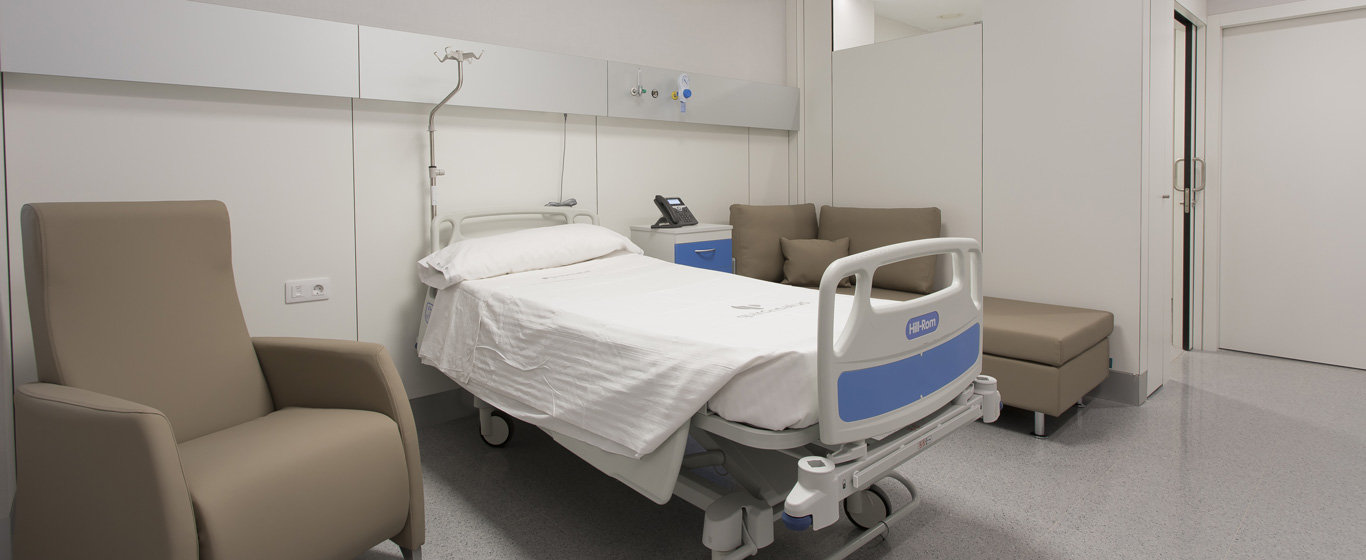Pancreatitis
What are the different types of pancreatitis? Learn all about its causes, symptoms, and the most effective treatments for this pancreatic disease.
Symptoms and Causes
Pancreatitis is an inflammation of the pancreas that occurs when the enzymes it produces to digest food attack the organ itself because they become active before reaching the intestine. This condition affects the proper functioning of the pancreas and, therefore, the production of hormones responsible for regulating glucose in the body.
There are two types of pancreatitis, depending on how it presents:
- Acute pancreatitis: It appears suddenly and, with proper treatment, the pancreas regains its normal function.
- Chronic pancreatitis: It develops gradually, usually due to alcoholism. It severely affects pancreatic tissues, which do not fully recover regardless of treatment.
When this disease occurs because the body’s immune system attacks the pancreas, it is called autoimmune pancreatitis. This condition often affects other organs, such as the liver or kidneys, and is associated with other intestinal diseases.
Regardless of its type, pancreatitis is a serious disease that significantly reduces a patient’s life expectancy. This is particularly true in cases of necrotizing pancreatitis, which occurs when inflammation prevents certain parts of the pancreas from receiving the oxygen they need to survive.
Symptoms
The symptoms of pancreatitis vary depending on the type of disease, although some are common.
Acute pancreatitis is characterized by:
- Abdominal pain, sometimes radiating to the back.
- Abdominal bloating.
- Fever.
- Rapid heartbeat.
- Nausea and vomiting.
Chronic pancreatitis symptoms include:
- Abdominal pain, often more intense after eating.
- Abdominal bloating.
- Unexplained weight loss.
- Steatorrhea (oily stools due to fat content).
- Foul-smelling stools.
Causes
The main cause of pancreatitis is digestive enzymes attacking the pancreas, often due to conditions such as:
- Alcoholism.
- Cystic fibrosis.
- High triglycerides (hypertriglyceridemia).
- Gallstones (cholelithiasis).
- Complications from an endoscopic retrograde cholangiopancreatography (ERCP), a procedure used to examine the bile and pancreatic ducts.
- Pancreatic cancer.
- High calcium levels in the blood (hypercalcemia).
- Common bile duct stones (choledocholithiasis).
- Hyperparathyroidism.
Risk Factors
Several factors increase the risk of developing pancreatitis, including:
- Excessive alcohol consumption.
- Smoking.
- Obesity.
- Diabetes.
- Family history of pancreatitis.
Complications
Pancreatitis can lead to life-threatening conditions such as diabetes, kidney failure, pancreatic cancer, malnutrition, or respiratory problems. It also increases the risk of bacterial infections and the formation of pancreatic cysts.
Prevention
To prevent pancreatitis, maintaining a healthy diet is essential. It is recommended to avoid alcohol consumption, follow a balanced diet that does not rely heavily on fatty foods, and maintain a healthy weight.
Which Doctor Treats Pancreatitis?
Internists and specialists in the digestive system diagnose and treat pancreatitis.
Diagnosis
Pancreatitis is diagnosed through various tests, including:
- Blood tests: Provide information on triglyceride levels, white blood cell count, pancreatic and liver enzyme levels, and kidney function.
- Abdominal ultrasound: Helps assess the condition of the pancreas and detect gallstones.
- Magnetic resonance imaging (MRI): Provides a detailed image of the pancreas.
- Stool analysis: Detects the presence of fat in the stool.
Treatment
The treatment of pancreatitis varies depending on its type, as the therapeutic goals differ.
Acute Pancreatitis Treatment
The main goal is to cure the disease and restore normal pancreatic function. Common approaches include:
- Hospital monitoring to ensure proper hydration and stable vital signs.
- Pain relievers to reduce discomfort.
- Medications to block gastric acid secretions.
- Surgical removal of gallstones (cholecystectomy), when necessary, through endoscopy.
Chronic Pancreatitis Treatment
Treatment focuses on managing symptoms and improving the patient’s quality of life. It typically includes:
- Therapy for alcoholism to prevent further damage.
- Pain relievers. In some cases, nerve block procedures are the only solution.
- Enzyme supplements to aid digestion.
- Dietary modifications, favoring a low-fat diet with adequate nutrients. Several small meals throughout the day are recommended.




































































































